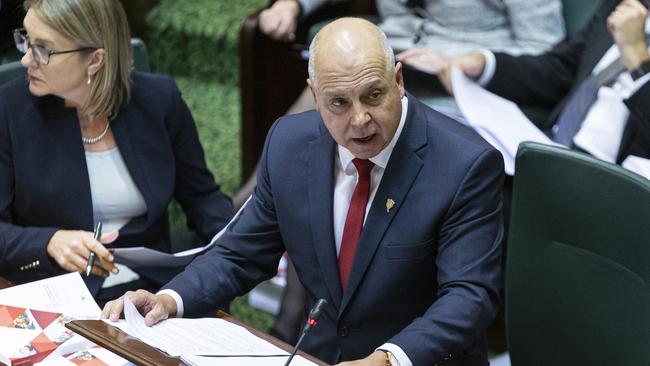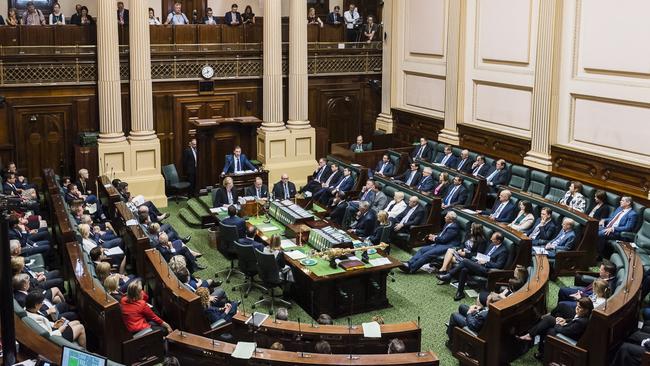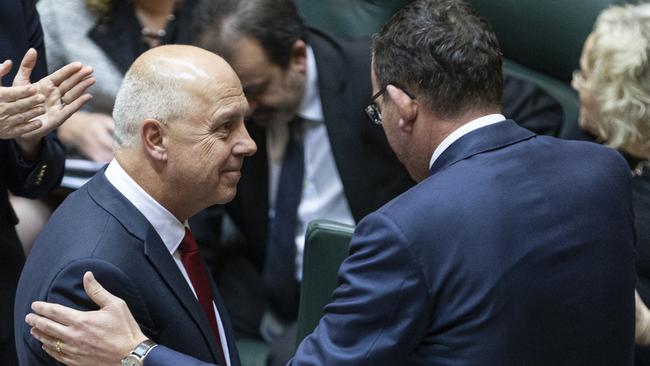State government forced to curb spending under new rules
Stern measures have been put in place to prevent Victorian government departments from splurging big bucks as the spending habits on Spring St soar.

VIC News
Don't miss out on the headlines from VIC News. Followed categories will be added to My News.
Victorian government departments are being forced to tighten their belts as spending has soared and negotiations continue on a series of expensive public sector wage deals.
Government departments have also been told to cut down on their use of expensive private consultants, with new rules in place from this month “to reduce inappropriate use of professional services and labour hire”.
Public servants are being warned to stop outsourcing their key roles such as policy development and implementation, community engagement and business strategy.
There is no official freeze on hiring but all new job approvals must be ticked off through department secretaries and programs are being audited to find savings.

Newly released financial data shows Victoria finished 2018/19 with a $1.4 billion surplus — $267 million above the forecast in Treasurer Tim Pallas’ state Budget handed down in June.
But the government’s $13.1 billion infrastructure spend was a massive $706 million higher than estimated.
A government spokeswoman did not indicate where the extra money being spent but said much of the funding bill was going to upgrading and building new schools, roads and hospitals.
“Victoria is not immune from the economic pressures felt across the world — that’s why we are doing the work to ensure taxpayers’ money is directed at the priorities of the Government and those of the Victorian people, as reflected in last year’s election result,” she said.
Stamp duty fell by more than 13 per cent compared to the last financial year and government revenue has also been hit by trouble across international financial markets and lower investment returns.

But the property market has also started to show signs of improvement leading into spring.
Mr Pallas, who is also the industrial relations minister, now faces a difficult Budget balancing act as he negotiates new pay deals with police, firefighters, paramedics and other public sector workers.
The government is trying to restrict wage rises to 2 per cent a year, a limit which unions maintain they will not accept, particularly after Mr Pallas and his fellow ministers were recently handed pay rises totalling almost 12 per cent by an independent tribunal.
The latest financial data showed Victoria’s public sector wages bill topped $25 billion last year, a $2.1 billion increase on 2017/18 and $309 million more than expected four months ago.
MORE: MELBOURNE’S FREEWAY DANGER ZONES REVEALED
CLERK’S FLING WITH CASTLE STAR-TURNED-MAGISTRATE
WAS CANCER HOSPITAL RUSHED FOR BIDEN VISIT?
The increase was blamed on increased resources for schools, hospitals and police stations, as well as pay rises built into existing bargaining agreements.
While total revenue was $5 billion up on the previous year, the government’s $23.7 billion tax take was $161 million below the June estimate, which was blamed on lower than-expected land tax payments.
At a meeting of state and federal treasurers earlier this month, Mr Pallas warned that the slowing national economy could lead to reduced GST revenue for the states.
The state maintains its triple-A credit status, with ratings agencies still giving a stable outlook.
